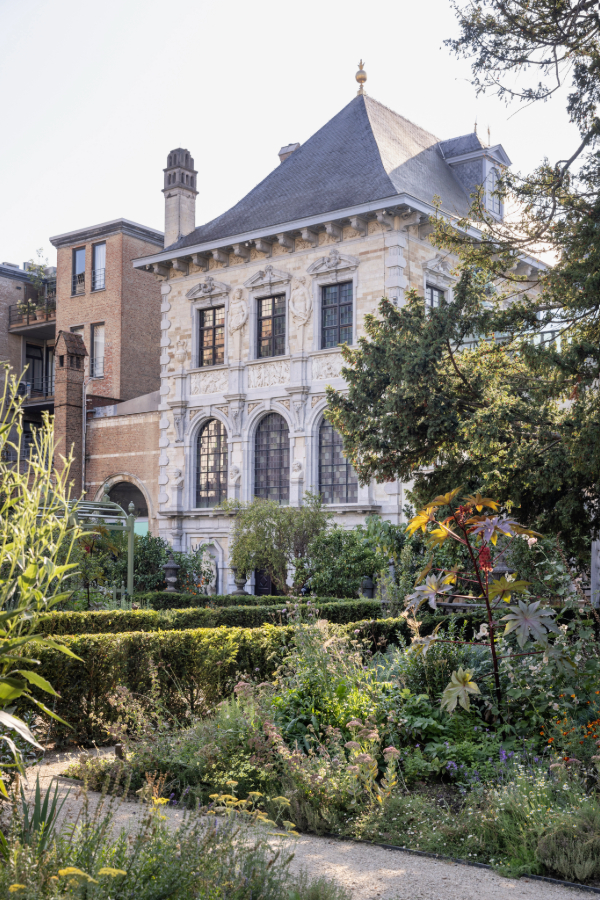Trinity Hall Fellows Professor Alexander Marr and Drs Justin Davies have founded a new three-year collaboration with the Rubenshuis, Antwerp, to support the continued study of Renaissance and Early Modern Flemish Art at the University of Cambridge.
Trinity Hall collaborates with Rubenshuis in new cultural exchange initiative
Posted:
20 Sep 2024

Led by Professor Alexander Marr (Head of History of Art at Cambridge) and Dr Bert Watteeuw (Director of the Rubenshuis), university students from Cambridge and Flanders will have the opportunity to take part in an innovative cultural exchange programme to explore the shared cultural heritage between the two institutions. Building on an AHRC-funded Knowledge Exchange programme led by Professor Marr, they devised the exchange as a way to strengthen the bonds between Rubenshuis and Trinity Hall and inspire a new generation of art historians.
“Post-Brexit, academic cooperation has become more difficult given that funding is more difficult to come by, but there’s always been a very strong link between Flanders and the United Kingdom in relation to history of art. It became clear that what we were doing was of great interest, not only as a new sort of academic way ahead, but also to the Government of Flanders, to try and grow these strong relationships between us further.
“The aim is to encourage the exchange of expertise, to develop and consolidate networks and to stimulate concrete cooperation,” said Justin
The programme will consist of intensive multi-day workshops, lectures delivered by senior scholars, and visits to the Rubenshuis and Trinity Hall, to allow students to engage critically with new perspectives in art history. A selected group of Cambridge and Antwerp postgraduate students, postdocs and museum professionals, will participate in a summer school exchange where they will be fully immersed in their exchange city and given access to exclusive art collections from outside their home institution. In Lent term, two promising Cambridge scholars and/or researchers will be supported in a two-month stay with the Rubenshuis, followed by a similar programme for Flanders students to join us here at Trinity Hall.
‘The Rubenshuis and its research institute, recently revitalised under the inspiring leadership of Dr Bert Watteeuw, is a field leader in the display, research, and teaching of early modern Flemish art. In this collaboration with Cambridge, which has a distinguished tradition and collections in this area, we aim to create new, cross-cultural opportunities for the next generations of scholars and curators,’ commented Alex.
The programme’s first year is funded by the Government of Flanders and will begin this Michaelmas term, with a talk by distinguished Rubens scholar Professor Dr Nils Büttner on the history and interpretation of Rubens’s Medici cycle paintings. For more information on the talk and to reserve a spot, head to the talk’s Eventbrite webpage.
Professor Alexander Marr FSA is a Staff Fellow at Trinity Hall, Professor of Renaissance and Early Modern Art, and Head of the Department of History of Art. His most recent publications include the monographs Rubens’s Spirit: From Ingenuity to Genius and the forthcoming Holbein’s Wit: Pictorial Ingenuity in Renaissance Art.
Drs Justin Davies is a Fellow-Commoner at Trinity Hall and Visiting Fellow of the Rubenshuis in Antwerp. He is a specialist on Flemish artist Anthony van Dyck and is a Knowledge Exchange Fellow in the History of Art Department at Cambridge.
